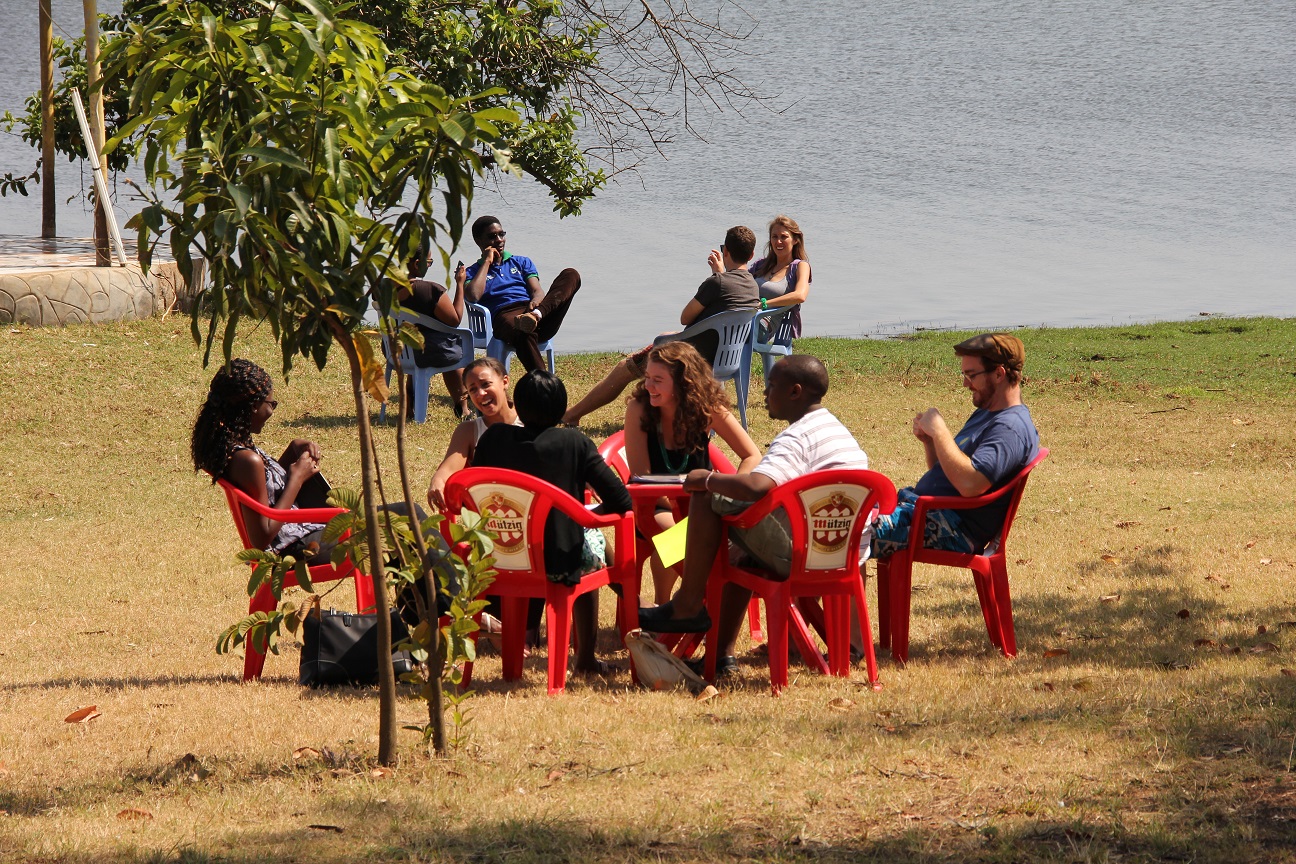One of GHC’s leadership practices – a skill we seek when recruiting, selecting, and training GHC fellows – is the ability to inspire and mobilize others in the pursuit of health equity. For our fellows to have the maximum impact on the health of the communities they serve, both during and after their GHC placements, they must motivate others across boundaries, cultures, and disciplines to take action. To do this, fellows must communicate their motivations for social change work, as well as have a strong grounding in advocacy and communications tools.
Our fellows practice and develop their public narratives – their reasons for joining the health equity movement – throughout the fellowship year. Last week, at our End of Year Retreat in Rwanda, we had the privilege of listening to our outgoing fellows present their stories to the rest of their class. We were continually inspired as we heard each fellow use their unique story as a call to action for social change and health equity.
Fellows begin developing their personal narratives at our Leadership Training Institute each year. This year, to help fellows hone their advocacy and story-telling skills, we were joined by David Gold, an attorney and principal at Global Health Strategies, a global health communications, advocacy, research and strategy firm. He introduced fellows to the fundamentals of advocacy work and shared his experiences working with Act UP and IAVI on HIV/AIDS advocacy in the 1980s and 1990s in New York. He advised fellows to
Err on the side of speaking up when trying to make a change.
Teddy Ruge, the co-founder of Project Diaspora, an online platform for mobilizing and motivating members of the African Diaspora to engage in matters important to the continent’s development, also joined us. Ruge was raised in Uganda and the U.S. and he spoke of the importance of having individuals and communities share their own stories, rather than speaking on behalf of others. In the context of the historically marginalized communities whom our fellows serve, and whose stories and interests have often been represented by outsiders, it was inspiring for Ruge to recognize fellows are actively working against this trend. As he put it:
Right here, right now, more Africans are representing themselves rather than letting other people represent them.
Fellows will continue to practice their public engagement, advocacy, and storytelling skills throughout their fellowship year in a variety of ways. At each quarterly GHC retreat, fellows will practice their public narratives. As a part of the public engagement component of the GHC program, fellows also post quarterly blogs to the GHC Fellow and Alumni Blog, have the opportunity to speak at conferences like TedX and Women Deliver, and publish op-eds in influential newspapers and blogs. A few recent examples include: The Gates Foundation’s Impatient Optimists Blog, The Zambian Daily Mail, and The Daily Monitor.
By amplifying our fellows’ global voices and equipping them with the tools to engage others, we hope to diversify the global health movement and ensure those at the decision making tables truly speak on behalf of the communities they serve.
What we’re reading:
- “Telling Your Public Story” Marshall Ganz
- “The Drum Major Instinct” Martin Luther King Jr.
- “How to Give a Killer Presentation”, Chris Anderson
What we’re watching:
- Harvard Kennedy School MPP Class Speech, Chris Arlene

